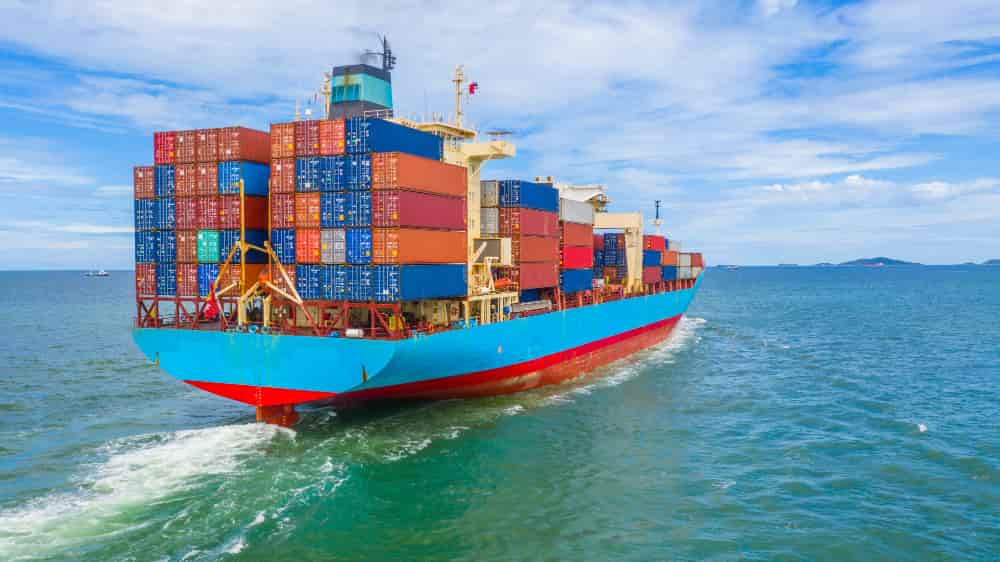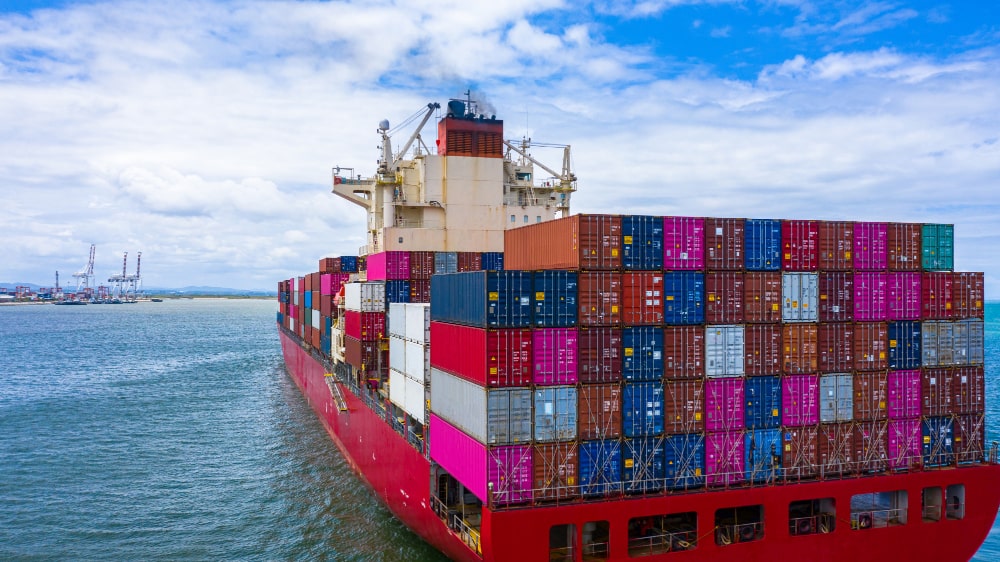Introduction
Modern economies are reliant on the shipping industry in many ways. Much of the world’s goods are carried by ships, which makes the choice of law in shipping contracts a critical aspect of Legal Practice & Specialization. It is usually a good idea to have an airtight shipping agreement or shipping contract in place, whether you’re a business that offers shipping services or you need to locate someone to help you ship your items.
These agreements outline the duties and obligations between a shipper and the customer who requires their goods delivered to international trade partners.
This article will explain what shipping contracts are, how they work, and which jurisdictions have the authority to resolve the shipping disputes. Let’s get started, shall we?
What are Shipping Contracts?

An agreement relating to a ship’s operations, navigation, maintenance, repair, or provisioning is known as a shipping contract.
When conducting any international transaction across the sea, the shipping industry abides by the laws of the different nations and the norms and regulations established by the International Maritime Organization (IMO).
Shipping contracts differ from general contracts in several ways, depending upon the choice of the law of shipping contracts. When goods exchange hands, it may not be clear when each party owns the things in question.
For instance, suppose there was an accident at a shipping company. The vendor? or the customer? Or perhaps the shipping firm? There are many different kinds of contracts, each with a unique feature that aids in understanding the same.
Contracting parties also need to choose the applicable law of shipping contracts to avoid unnecessary disputes in the future.
If you have an interest in exploring diverse types of contracts, we invite you to peruse one of the most widely read articles on design-build contracts.
What are the 10 Most Important Shipping Contracts in the Shipping Industry?
There can be several types of shipping contracts depending upon the nature of trade, choice of law of shipping contracts, or transaction or service delivery. Here are the 10 most common types of shipping contracts:
Contracts for the Sale and Acquisition of Ships or Vessels
Selling and buying ships or other maritime vessels is one of the essential tasks in the marine industry. A sale and purchase agreement is between a buyer and a seller. To complete this type of transaction, the parties involved need to be well-capitalized, knowledgeable about a specific ship type, informed about the legislation, and good negotiators. They also need to determine their choice of law for shipping contracts in this regard.
Agreements for the Delivery of Logistical or Transportation Services
A transportation services contract exists between the supplier and the recipient of the commodities.
In these agreements, the service provider commits to deliver the items to the vendors, distributors, etc., in exchange for a specific payment from the supplier. Again, it is vital to outline the parties’ choice of the applicable law of shipping contracts in case of unsatisfactory delivery of commodities.
Ship Management Agreements
When parties agree on a contract to deliver goods by sea, they also consider operating the ship for such activities. Ship management, which includes ship registration and management, ship entry and exit visas, foreign vessel management, ship maintenance management, and technical ship management, is a significant component of maritime traffic supervision and management.
If a ship doesn’t receive the proper maintenance, this could result in the equipment failing in the middle of a sea cruise. A breakdown may cost a lot of money. A second situation would be for a ship to be constantly moving or engaged in activities, necessitating the presence of a capable crew to take care of it. Hence, ship management agreements become important. They outline party obligations as regards maintaining the ship and taking care of the crew.
Agreement for the Charter or Lease of a Ship
A leasing agreement is a contract between the lessee and the shipowner. The Charter Party rented the ship to the Charter Party in whole or part for the Period specified herein.
Import and export contracts
A deal signed between importers and exporters from various countries for the selling and purchasing of goods and commodities is known as an import-export contract. The agreement is used for the international trade of goods, including industrial supplies, raw materials, completed goods, and e-commerce delivery.
These contracts specify the amount purchased, the price per product, the delivery terms, the payment terms, the documentation, and title retention.
Freight Agreement
Using a forward freight agreement (FFA), ship owners, charterers, and investors can protect themselves from the unpredictable nature of freight pricing. The contract owner is given the authority to acquire and sell freight in future periods.
Marine Insurance Contracts
Marine trade contracts have been dominant for a long time to lessen the dangers to their enterprise provided by natural and man-made perils.
The loss or damage to ships, cargo, terminals, and other forms of transportation that serve to transfer goods between their points of origin and destinations are covered by marine insurance.
Seafarers’ Employment Contracts
The Maritime Labour Convention mandates that maritime employment contracts (for the crew aboard ships) must be enforceable and adequately documented for each crew member. They cannot be general agreements catering to all crew members.
Collective Bargaining Accord of the Employer
This contract defines the terms of employment for the crew members working on the ship, including pay rates, working hours, and other factors. It is a contract between an employer and a trade union.
Freight Forwarding Agreements
Freight forwarding is a service used by companies that import and export goods. It provides reassurance that the goods will reach their destination in excellent condition.
What is the Choice of Law in Shipping Contracts?

A choice of law clause specifies the law that will be used to resolve legal issues resulting from a dispute. The choice of law clause defines which laws will determine the rights and obligations of parties. This clause also governs the choice of law for shipping contracts.
This type of clause addresses the common issues surrounding cross-border agreements that the parties need to consider as more and more business transactions occur across borders. As it may differ between nations and jurisdictions, this could significantly impact how the courts interpret and apply the contract’s contents.
If the parties fail to mention the choice of law in shipping contracts, international courts will first need to make that determination. Since each party may attempt to obtain a ruling in the most favorable court, this frequently results in conflicts of law and an expensive legal process.
It is crucial to include a governing law clause and a jurisdictional clause to convey the parties’ preferences regarding which nation’s laws and the legal system should be applied to any contractual disputes.
The following inquiries determine the choice of law in shipping contracts:
Law used to interpret the contract: Choose a Common Law jurisdiction that is more established and has a lot of precedents in maritime law. This way, disputes can be disposed of easily due to precedents.
Countries the contracting parties are based in: Choose a jurisdiction where the parties have the greatest chance of enforcement—that is, of being sued—is located. If neither party is from a Common Law jurisdiction, one may choose a neutral and well-established common law jurisdiction (e.g., Hong Kong).
Jurisdiction where the agreement was fulfilled: The jurisdiction in which the transaction will be carried out usually has the most pertinent legal system. It is to avoid going through the lengthy process and paying charges of international permissions to carry out overseas transactions.
Legal system preferable for the contract: Even if selecting a jurisdiction and a governing law are distinct tasks, one would often select the same law and jurisdiction because the enforceability of the contract depends on the legal framework that will uphold it. The legal process can be lengthy and complicated if the governing law and jurisdiction are different.
Laws that are convienent for both parties: Avoid using courts and legislation where judges have a reputation for being discriminatory, corrupt, or more protective of local interests. It ensures that the verdict is fair and accepted by both parties. Neither party should suffer undue loss when doing business, discouraging future transactions.
Ease of access: The jurisdiction and applicable law should be accessible to both parties. For example, if one of the parties cannot obtain a certain country’s visa or is barred from traveling there, it can affect the quality of the proof/testimony produced and, subsequently, the judgment. It should also preferably be psychically in proximity to both parties to reduce travel costs.
Will of the parties: Parties need to consider preferences regarding the choice of governing law. It ensures a smoother legal process in case of dispute resolution.
What are the Convention Rules for Establishing the Governing Law of a Contract of Carriage of Goods?
In addition to the Hague-Visby Rules of 1924, the United Nations Convention on the Carriage of Goods by Sea (Hamburg, 1978), also known as the Hamburg Rules, established a uniform legal framework governing the rights and obligations of shippers, carriers, and consignees under a contract of carriage of goods by sea.
The contracting parties or trade partners are free to designate their preferred law and jurisdiction in the bill of lading and choice of applicable law of shipping contracts because there were no necessary jurisdictional criteria that had to be adhered to under the conventions/international rules.
However, in 2008, a few nations rejected these conventions and replaced them with the Rotterdam Rules.
The Rotterdam Rules, also known as the United Nations Convention on Contracts for the International Carriage of Goods Wholly or Partly by Sea, build on the Hamburg Rules and other precedents to govern the rights and obligations of shippers, carriers, and consignees under door-to-door transportation contracts that include international sea legs. The parties to a disagreement may agree to have it resolved in any competent court, according to Article 27 of the Rules.
Conclusion
A shipping contract governs the management, navigation, maintenance, and provisioning of ships. They are critical in resolving disputes against the backdrop of international trade. They play a fundamental role in pre-emptively determining jurisdiction if a dispute arises between the contracting parties. This preemptive design considers all kinds of shipping contracts mentioned above in the article. These contracts become especially important in filling up a legal lacuna on the subject.
LegaMart is a global legal platform designed to connect individuals, startups, and businesses with qualified lawyers across jurisdictions. With a mission to simplify cross-border legal services, LegaMart provides users with access to a diverse network of vetted legal professionals who specialize in areas such as international law, corporate law, immigration, dispute resolution, and more.
By leveraging technology and user-friendly tools, LegaMart allows clients to search for lawyers by country, language, or legal expertise, submit their legal queries, and receive tailored legal solutions in a streamlined, efficient manner. The platform serves as a bridge between legal professionals and clients who need multilingual, multi-jurisdictional support — especially in today’s increasingly globalized legal landscape.
Whether you’re an entrepreneur launching a business abroad, an individual dealing with immigration paperwork, or a company navigating cross-border compliance, LegaMart aims to make legal help more accessible, transparent, and collaborative.




